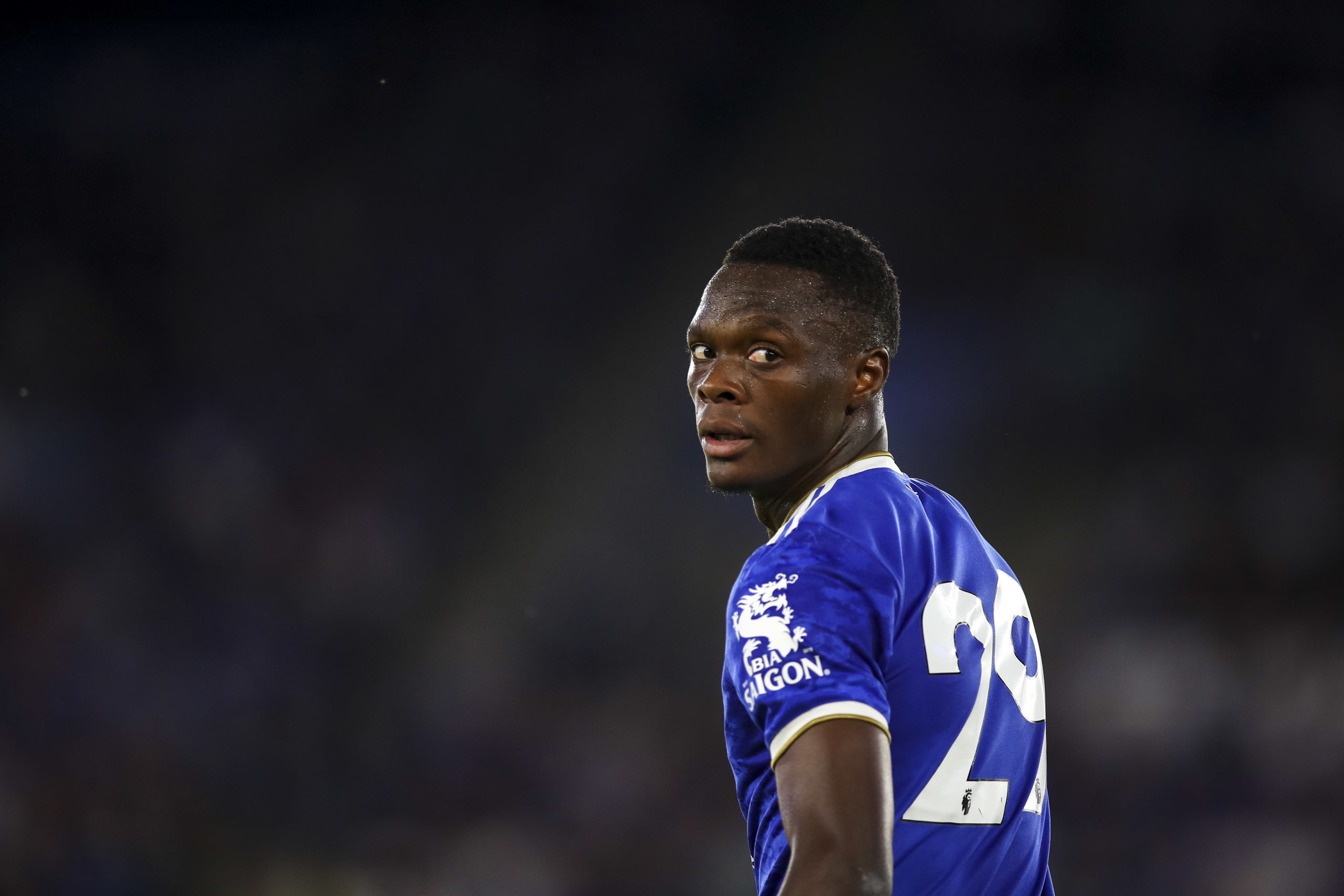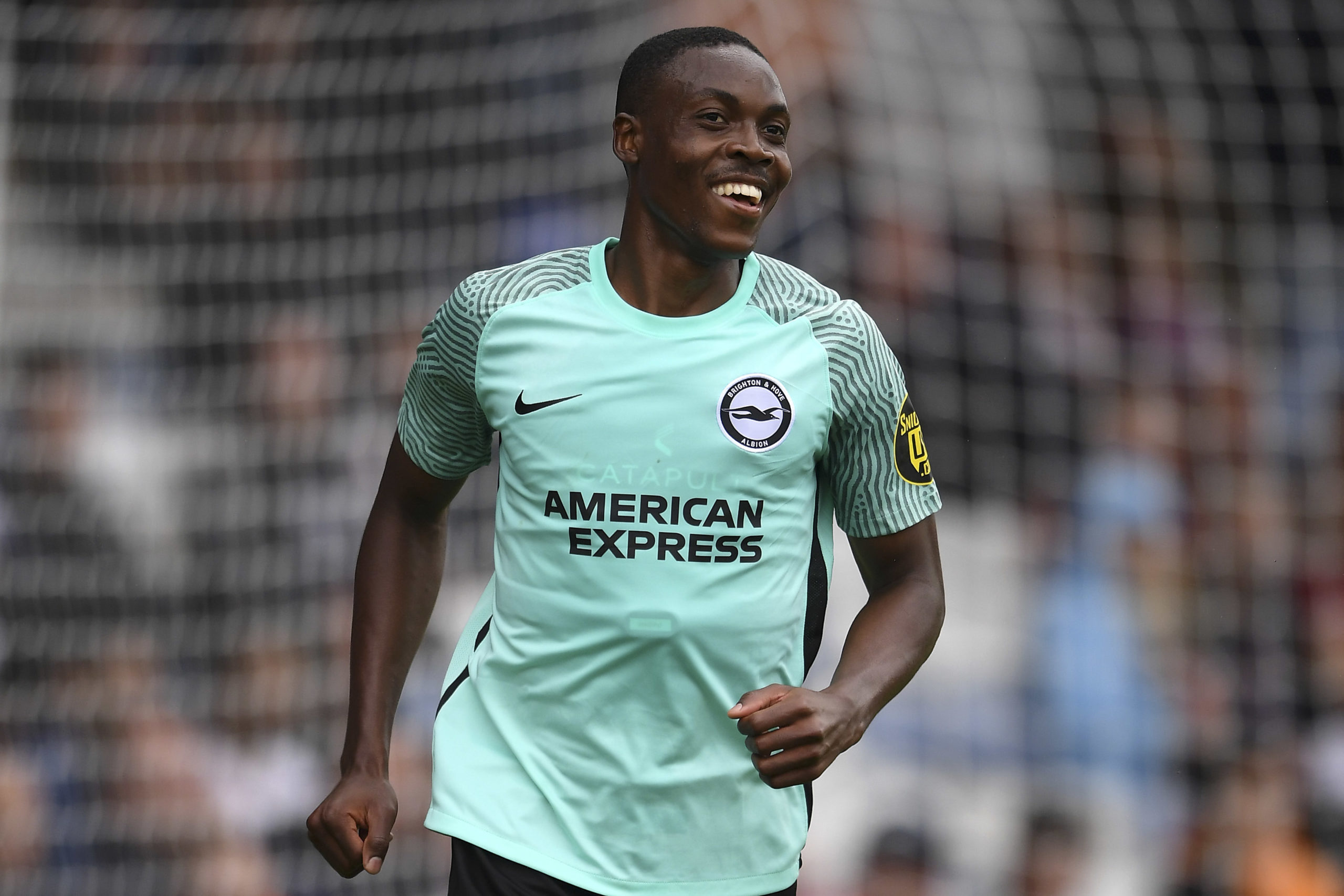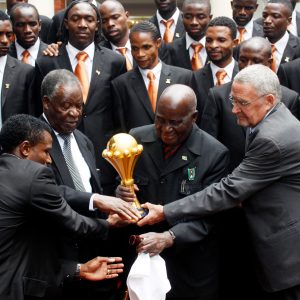Zambian players make good in the Premier League
A youth development programme in the country gave young football players the chance to showcase their skills and clubs a new pool of talent from which to draw.
Author:
3 September 2021

The footprint of Zambian footballers in the English Premier League is small, so two Zambians coming in at the same time – Patson Daka joining Leicester City and Enock Mwepu signing for Brighton & Hove Albion – feels momentous. Add the signing of Fashion Sakala by Scottish champions Rangers and it would not be far-fetched to consider this rash of transfer activity as a massive shift in Zambian football.
Mwepu and Daka were part of the group of players who helped Zambia qualify for the 2015 Under-17 Africa Cup of Nations (Afcon), the country’s first appearance in the tournament. Two years later, with Sakala added to the group, Junior Chipolopolo won the Under-20 Afcon on home soil before making an unprecedented run to the quarterfinals of the 2017 Fifa Under-20 World Cup.
To understand how Zambia suddenly became a major player at youth level, it is necessary to go back a few years. In 2012, telecommunications company Airtel launched a pan-African football development programme called Airtel Rising Stars, with a focus on discovering and nurturing footballing talent at a grassroots level. Participating nations were required to present Under-17 teams for a continental championship, after which stars would be selected to participate in football clinics with coaches from major European clubs.
“That’s when these young players, previously unrecognised, had their first opportunities to showcase their raw talent,” says former Football Association of Zambia (FAZ) general secretary Ponga Liwewe. “It [Airtel Rising Stars] allowed previously unheralded or unrecognised talent to come through and be seen closely. This was a vehicle that stood out, a shop window for them. From that programme was where this current crop of young players, who started making their mark, was first picked up.”
Related article:
The second season of the programme in 2013 saw a Zambia Under-17 side featuring Daka and Mwepu advance all the way to the final of the African championship before losing to Niger on penalties. Despite that disappointment, Daka finished as the competition’s top scorer, signalling his potential at the tender age of 15.
There immediately ensued a scramble for the youngsters unearthed by the initiative, as local clubs became wise to the wealth of talent available. Daka and Mwepu, who along with teammate Prosper Chiluya had been standout performers, joined Lusaka Celtic, a team based in Kafue, about 60km from the capital.
“Once they got into the limelight, they started to make their mark at a lower level in the national team, Under-17 level,” says Liwewe. “That’s when we were able to see that actually there is quite a lot of potential.”
Sakala’s path to prominence was more scenic, as he went through the local leagues, “coming from the village in the eastern part of Zambia and then moving to the bigger clubs in the Copperbelt”. His addition to the squad for the Under-20 Afcon took an already talented group up a notch, and under the tutelage of Beston Chambeshi, Junior Chipolopolo won every match on home soil, capturing the imagination with a bold, attacking style.
Doing it properly
During the preparations for that tournament, Daka and Mwepu won an admirer whose interest and involvement would go on to define their trajectories. Frederic Kanoute, by his own admission, never wanted to become a player agent. A man of ardent faith, the 2007 African Footballer of the Year is given to philanthropy, and so was focused on contributing in that regard to the welfare and development of football back home in Mali. However, he felt a need gnawing away at him to help combat the exploitation of young talent from Africa by unscrupulous, exploitative representatives.
“I realised very early that some agents were coming and nicking the players and taking them to Europe, and then after that they were not accompanying them and looking after them in the right way,” Kanoute told the BBC World Service.
“Sometimes they would abandon them as soon as they had a problem. So when I finished my career, I said, ‘Look, I’m going to carry on helping the academy, but I’m also going to set up my own agency.’ Now we can just follow them from A to Z and make sure that the transition is done properly and we prepare them well, and the follow-up in Europe is done properly.”
Related article:
Part of Kanoute’s resolve to do it right was to only commit to players just starting out in their careers. Following a forthright conversation detailing how their partnership would benefit the player, a star-struck Daka – “I had to ask myself if it was the same Freddie Kanoute I had watched,” he said – entrusted his career to Kanoute. When, on the agent’s recommendation, Red Bull Salzburg flew into Zambia to appraise Daka, they found they could not take their eyes off Mwepu.
Dennis Bakke, a football scout working in Zambia at the time, could see why they were so enamoured. “Mwepu wasn’t an obvious star at first,” he says. “He didn’t look like much physically, but the more you watched him, the more you saw he covered the pitch all over the place. He was nominally a central midfielder, but sometimes wound up on the wing and in attacking midfield positions, wherever he could go. He was just around everywhere they attacked, driving forward with the ball.
“The other central midfielder was not as good, but it did not matter because Mwepu played the whole midfield by himself. It made me realise that he was going to be really good.”
Salzburg were convinced of that as well and, with Kanoute’s guidance, both Daka and Mwepu inked deals with the Austrian club within six months of each other in 2017. For his part, Sakala took advantage of interest from Russia, joining Spartak Moscow in 2017 before linking up with fellow Zambia Under-20 teammate Emmanuel Banda at Belgian side KV Oostende a year later.
Generational shift
As southern Africa’s influence in the Premier League has waned over the past decade, there has arisen the perception that players from the region do not adapt well to European football. Certainly compared to, say, West Africa, the chasm in terms of representation in Europe’s major leagues is significant. Why exactly is this?
“One thing I’ve noticed is that life is a lot ‘easier’ in this part [southern Africa] of the world,” Liwewe suggests. “I’ve been to Nigeria quite a few times. The population itself means it’s a fight for survival. I see, in West Africans, a lot of independence. You either fight for yourself, or you don’t make it.
“Also, culturally, we’re not as outspoken. Here, people are more subdued, more conservative. So when you have situations that require you to really go out there and give everything you’ve got, I think we lack a little bit of that mental strength that other parts of Africa show. Maybe that’s one key reason, outside of footballing factors, for the lack of will to succeed from this region.”
In that sense then, these three have already bucked a trend. Not only is their success in Europe to this point a validation of their own efforts, it could also be the spark that reignites southern Africa’s hunger to make a mark at the highest levels of the club game.

They are also carrying the torch for a generational shift in Zambian football. Despite their relative youth, Daka, Mwepu and Sakala have amassed more than 50 senior international caps between them. At just 16, Daka was called up to Chipolopolo for the first time in 2015 to, in the words of former coach Patrice Beaumelle, “see how he would handle himself against international-level players”.
When Zambia opened their qualifying series for the 2018 World Cup and the 2019 Africa Cup of Nations with home defeats to Nigeria and Mozambique, erstwhile coach Wedson Nyirenda made the bold decision to do away with the remnants of the generation that had won the 2012 Afcon and turn over the national team to the Under-20s.
That meant debuts for Sakala and Mwepu as well in 2017, with the latter finding the net in his first appearance, against Algeria. There was an almost immediate uptick in performance from the national team. Zambia would only lose once more in that World Cup qualifying series, in a keenly contested match away to Nigeria.
Related article:
“The transformation was as a result of those young guys coming in,” says Liwewe. “I think Patson scored like three goals in those matches, Mwepu also scored. He was outstanding in midfield. Sakala was less successful, he was hanging on to the ball a bit too much. But you could see the new generation brought a new impetus and a surge in the team’s performance. And since then they’ve held their places.”
Zambia have not pushed on as expected since then, however. A slew of managerial changes, for one, has undermined their momentum and saw them miss out on the 2019 Afcon. Still, the sense that Zambia are seeing the beginnings of a “golden generation” can only be enhanced by transfers such as the ones these three have made. Although with that level of expectation comes pressure.
“Going forward, they’re now going to be the backbone of the team,” Liwewe says. “These guys are the foundation of Zambian football going forward from here on, so they are very much in the driving seat as the future.”
Whether they will ultimately fulfil that expectation remains to be seen. But playing at the highest level of the world game certainly cannot hurt their chances.



